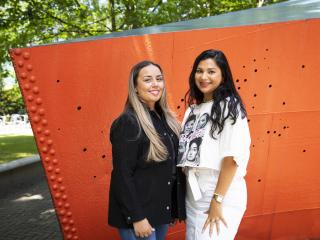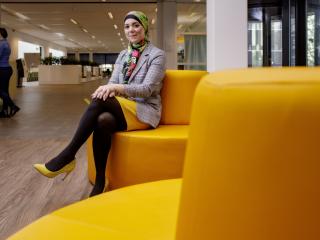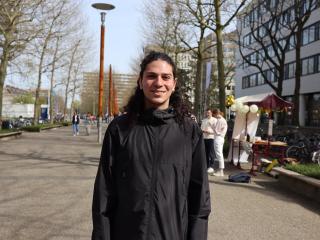Making an impact on elementary schools with a free learning module
Scientists of Tilburg University use their knowledge and skills in a variety of ways to benefit society. Working together with the board of Students4Students, researchers Dr Rian Aarts, Dr Max Spotti, and Professor Jos Swanenberg have developed the Super-diversity learning module. Aarts: “Teachers can use the learning module to address diversity in a safe manner. We show them that a different mother tongue need not obstruct the learning process.”
Photography: Gerdien Wolthaus Paauw
Misunderstandings about language abound, Aarts explains. “Take the idea that languages interfere with each other or that children only need to hear Dutch to master it. As a result, at school, the use of languages other than Dutch is often frowned upon. And teachers sometimes advise parents to only speak Dutch at home, while these parents may not be proficient in Dutch. Also, speaking the language that is interwoven with your emotions is a good thing. My message is that the quality of language use is more important than which language you speak.”
The Super-diversity learning module is a compact teaching program for the three highest grades in elementary school. Teachers may download the lesson plans for free and integrate them into their citizenship program. The learning module developed by the researchers aligns with the impact target set by Tilburg University.
My message is that the quality of language use is more important than which language you speak
– Rian Aarts
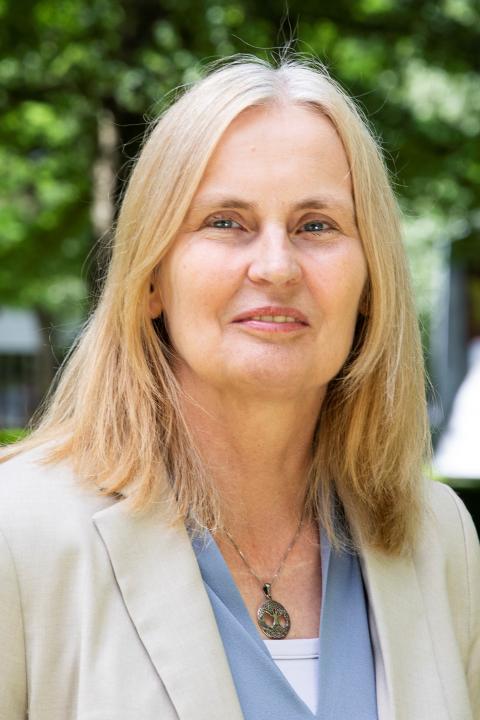
What is Super-diversity?
Spotti, Associate Professor at the Cultural Studies Department of the Tilburg School of Humanities and Digital Sciences, explains: “Super-diversity is sociological concept relating to migration. In this context the word ‘super’ does not mean better, much, or great, but ‘on top of’, after Latin supra. Diversity has been around for centuries. In 1800 Jews were migrating to other countries. In the 1950s and 1960s Turkish and Moroccan guest workers were brought to the Netherlands, where people from Indonesia and Suriname were also living. This is one of the main, group-based diversity moments in Europe.” Diversity then changed from a group activity into an individual step. Since around 1990, thanks to the fall of the Iron Curtain and the Schengen Treaty, we have been moving from one country to the other within the EU much more easily. “Through digitalization, too, we can live transnationally and stay in touch with family and friends in other countries easily and relatively cheaply.” Migration changes from something fixed to a fluid life project, something that can be done briefly and frequently: living and working in one place for a few years, then in another place, and so on. “That’s how individuals move through Europe and the whole world. And that generates Super-diversity.” Spotti studies linguistic landscaping. "Language can be observed in city centers, in suburbs, at airports, in shops, in advertising. One of the aims of studying the linguistic landscape is to understand the people behind all those languages, their migration history, and a country’s colonial history.” For the learning module he created a short informative video about linguistic landscaping.
The world is a small place
Associate Professor Aarts is an expert in multilingualism and diversity. “Next to my work at the Department of Culture Studies, I am involved in the teacher-training institute and the Academic primary education teacher-training college (PABO) in Tilburg, and I do projects at elementary and secondary schools.” For the Super-diversity learning module she created short informative videos about growing up speaking several languages and about multilingualism in education. “One question we address is how teachers deal with their students’ home language. And in language children can understand we explain what globalization is by linking it to what children see at school. We show that migration and the Internet make the world a smaller place. Refugees and guest workers travel the world all the time, and on the Internet students see how children in other countries live.” Spotti adds: “They’re playing computer games with their peers from other countries, and speaking English with each other they notice that children with different mother tongues speak different varieties of English.” About the need for the learning module he says: “People who’ve been raised in one language should realize this is not the norm. In cities like Rotterdam multilingualism is the norm. Teachers can use the learning module to make their students aware of the evolution of diversity: it’s become a lot bigger through globalization and it is unstoppable.”
'This identity issue is crucial if we want education to be not only about learning skills but also about shaping balanced students as future citizens
– Max Spotti
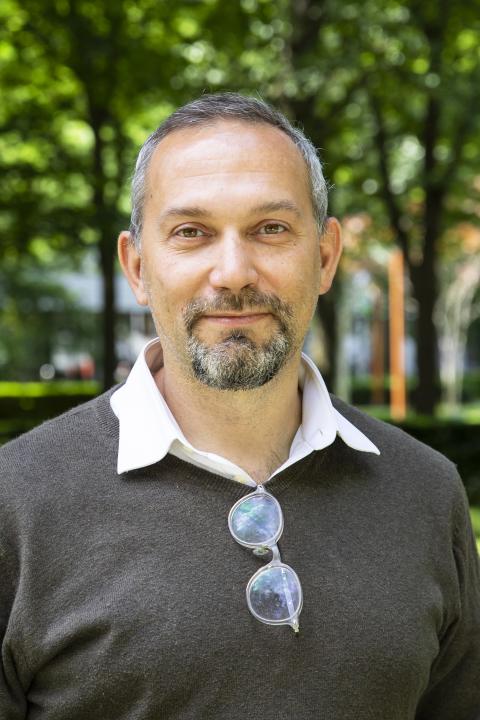
Language and identity
These lecturers are convinced the learning module has a lot to offer to society. “The learning module can help reshape the dialog between different cultures. In addition to raising awareness of multilingualism, it is a way to fight inequality of opportunity. Of course, it is necessary to be proficient in Dutch, because Dutch is the standard language in the Netherlands and it is tested in school, but school is also the place where identities grow.” And it is precisely in that area where society can do better – and benefit. Spotti: “The growth of people’s identity is affected if they feel their mother tongue is not recognized by their teacher even though school is such an essential part of their identity. Multilingual individuals don’t have multiple identities; the languages they speak are part of their identity. This identity issue is crucial if we want education to be not only about learning skills but also about shaping balanced students as future citizens.”
Appreciation and understanding
Spotti hopes the learning module will help children become world citizens. “Citizens who do not perceive multilingualism as an obstacle and who acknowledge it may have added value. Also, for young children it is interesting and fascinating to become aware of all those languages and of how each language relates to its speakers and their history. And multilingual children will be appreciated for their background, because their entire class is engaging with the topic. At the end of the day, everyone is multilingual, because we are all influenced by several languages.” Aarts hopes children will understand each other better and learn to love the enrichment multilingualism brings. “Being open to one another and showing interest in each other’s language and culture.”
Curious to learn more about the Super-diversity learning module? Download the lesson plans here:
Super-diversity learning module for children | Tilburg University
Super-diversity learning module partners
In developing this learning module, the Department of Culture Studies worked together with the board of Students4Students, a student organization committed to equal opportunities and inclusion in education, and Linda Parasiz of the Marketing & Communication Division.
Collaboration with Students4Students
Dr Rian Aarts drafted the lesson plans of the Super-diversity learning module in collaboration with Students4Students (S4S) board members Jamie Piroe and Mané Kirakosian. Aarts: “Working together was fun. The S4S students come from different backgrounds, so the theme directly speaks to them. It matters to them that children learn about differences in background, appreciate those differences and the various mother tongues, and understand they matter.” The project also has educational value for the S4S students. “They organize a lot, and they learn from that. For example, working with the IMC Weekend School and the MOVE Foundation, the students make useful contacts and learn from working with children.
Date of publication: 30 June 2022

